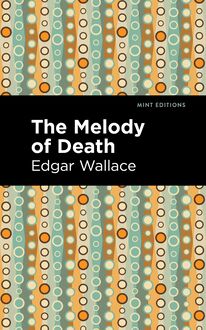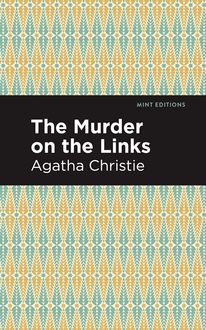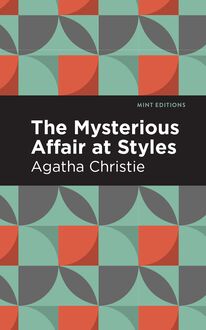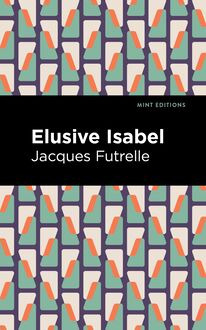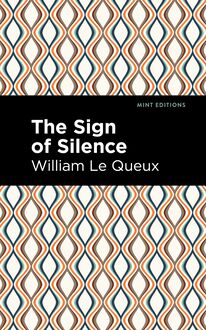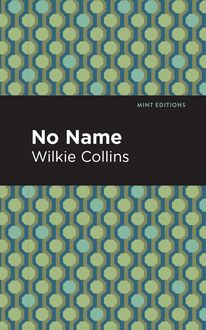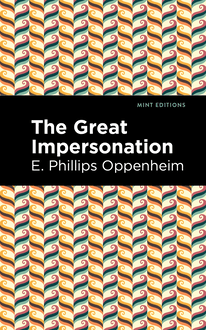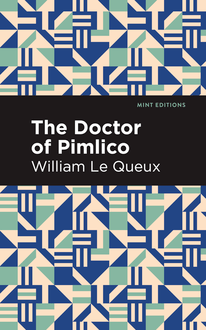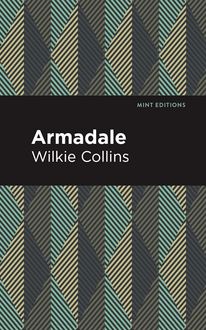-
 Univers
Univers
-
 Ebooks
Ebooks
-
 Livres audio
Livres audio
-
 Presse
Presse
-
 Podcasts
Podcasts
-
 BD
BD
-
 Documents
Documents
-
- Cours
- Révisions
- Ressources pédagogiques
- Sciences de l’éducation
- Manuels scolaires
- Langues
- Travaux de classe
- Annales de BEP
- Etudes supérieures
- Maternelle et primaire
- Fiches de lecture
- Orientation scolaire
- Méthodologie
- Corrigés de devoir
- Annales d’examens et concours
- Annales du bac
- Annales du brevet
- Rapports de stage
La lecture à portée de main
Vous pourrez modifier la taille du texte de cet ouvrage
Découvre YouScribe en t'inscrivant gratuitement
Je m'inscrisDécouvre YouScribe en t'inscrivant gratuitement
Je m'inscrisEn savoir plus
Vous pourrez modifier la taille du texte de cet ouvrage
En savoir plus

Description
The Wiles of the Wicked (1900) is a mystery novel by Anglo-French writer William Le Queux. Published at the beginning of Le Queux’s career as a leading author of popular thrillers, The Wiles of the Wicked is a story of mystery, murder, and redemption. Using his own research and experience as a journalist and adventurer, Le Queux crafts an accessible, entertaining tale for readers in search of a literary escape. Known for his works of fiction and nonfiction on the possibility of Germany invading Britain—a paranoia common in the early twentieth century—William Le Queux also wrote dozens of thrillers and adventure novels for a dedicated public audience. Although critical acclaim eluded him, popular success made him one of England’s bestselling writers. In The Wiles of the Wicked, a young man goes abroad to discover himself, but returns home totally blind. Following the death of his father, Wilford Heaton embarks on a tour of Europe, avoiding responsibility at the cost of his intellectual promise. In Italy, a sudden onset of scleritis robs him of the power of sight, forcing him to return home to London. Having spent his fortune without thought for his future, Heaton moves into a dismal flat to be close to his friend Dick Doyle, a promising writer and caring companion who helps Heaton navigate daily life with a terrible disability. When Doyle leaves for several weeks on business, Heaton—overcome with despair—takes a risk by venturing into the streets of London alone. Struck by a carriage, he lies unconscious for hours before waking in a strange apartment in the company of several strangers. Conversing with these Good Samaritans, Heaton feels his sense of humanity slowly return to him. As a piano plays Chopin’s “Andante Spianato,” a woman suddenly cries out, and a fight leaves her and another man murdered. Having witnessed this terrible crime without the ability to see it, Heaton steels himself not only to solve the mystery, but to regain his hold on life. With a beautifully designed cover and professionally typeset manuscript, this edition of William Le Queux’s The Wiles of the Wicked is a classic mystery novel reimagined for modern readers.
Sujets
Informations
| Publié par | Mint Editions |
| Date de parution | 21 mai 2021 |
| Nombre de lectures | 0 |
| EAN13 | 9781513285986 |
| Langue | English |
Informations légales : prix de location à la page 0,0500€. Cette information est donnée uniquement à titre indicatif conformément à la législation en vigueur.
Extrait
The Wiles of the Wicked
William Le Queux
The Wiles of the Wicked was first published in 1900.
This edition published by Mint Editions 2021.
ISBN 9781513280967 | E-ISBN 9781513285986
Published by Mint Editions®
minteditionbooks.com
Publishing Director: Jennifer Newens
Design & Production: Rachel Lopez Metzger
Project Manager: Micaela Clark
Typesetting: Westchester Publishing Services
C ONTENTS I. W HY T HIS IS W RITTEN II. T HE B RACELET AND THE P ALM III. T HE H OUSE WITH THE P ORTICO IV. T HE W OMAN V. T HE U NSEEN VI. H AND AND H EART VII. T HE M YSTERY IS I NCREASED VIII. T HE S TRANGER IX. F ROM THE U NKNOWN X. T HE G IRL IN B LUE XI. T HE F OURTEENTH OF O CTOBER XII. “I T IS HIS !” XIII. T HE E NCHANTMENT OF A F ACE XIV. A R EVELATION XV. W HAT I S AW XVI. T HE I NNER R OOM XVII. T HE M ARBLE H AND XVIII. M YSTERY I NEXPLICABLE XIX. M Y U NKNOWN W IFE’S S TORY XX. H OW M ANY Y ESTERDAYS ? XXI. G EDGE T ELLS THE T RUTH XXII. B ROKEN T HREADS XXIII. I M AKE A D ISCOVERY XXIV. T HE M ASTER H AND XXV. T HE P ERSON W HO K NEW XXVI. E DNA M AKES A P ROPOSAL XXVII. M ORE S CHEMING XXVIII. T WO W ORDS XXIX. T HE E NIGMA XXX. C ONCLUSION
I
W HY T HIS IS W RITTEN
Wilford Heaton is not my real name, for why should I publish it to the world?
The reason I do not give it is, first, because I have no desire to be made the object of idle curiosity or speculation, and secondly, although the explanation herein given will clear the honour of one of the most powerful of the Imperial Houses in Europe, I have no wish that my true name should be associated with it.
I have, however, a reason for writing this narrative—a very strong reason.
The story is an enthralling one; the adventures stranger, perhaps, than ever happened to any other living person. I have resolved to relate the plain unvarnished facts in their sequence, just as they occurred, without seeking to suppress or embellish, but to recount the strange adventures just as they are registered in the small leather portfolio, or secret dossier, which still, at this moment, reposes in the archives of a certain Ministry in one of the European capitals.
There have recently been stories afloat—strange stories. At first I laughed at all the absurd rumours, but very quickly I saw how seriously distorted the real facts had become, for ingenious paragraphs of certain so-called Society papers, grasping the story eagerly, worked it up into a narrative which reflected very seriously upon the honour of one who is dearest in all the world to me.
Well, my tale—or exposure—is written here.
In order that those who read may clearly follow the curious chain of circumstances, it is necessary for me to go back some eight years or so—not a long period as far as time goes, but to me a veritable century. I was young, just turned twenty five. I was decently well-off, having come into an income of nearly a couple of thousand a year left me by my father, a sum which put me beyond the necessity of entering business, pursuing the daily grind, or troubling about the morrow. My career at Oxford had, I fear, been marked by a good many shortcomings and many youthful escapades, but I ended it by taking my degree of Bachelor of Medicine, shortly afterwards pursuing the fashionable habit of “going abroad.” Within two years, however, I returned to London world-weary—like so many other young men who, being left comfortably off, commence to taste the enjoyment of life too early—and settled down in a suite of smoke-begrimed rooms in Essex Street, Strand.
The place was horribly dingy, situated in that cul-de-sac which is quiet and almost deserted, even though only a stone’s throw from the busiest, noisiest, and muddiest thoroughfare in the world. The ground and first floors of the house were occupied by several firms of solicitors, whose doors were covered with ragged and sadly faded green baize, while the second floor I rented as my abode. The quaint, shabby, bizarre old place had been built at the end of the last century for family residence, in the days when Bloomsbury was an aristocratic quarter and great men lived in Leicester Square; but now, alas! smoke-stained and time-dimmed, it was given over to the dust which the law accumulates. From its exterior, like those of its neighbours, there protruded those great iron extinguishers used by the linkmen of days bygone, while the broad, thin-worn stairs, easy of ascent, the solid mahogany doors, the great carved handrail, and the fine Adams ceilings, like those in the older houses of the Adelphi, told mutely of the prosperity of its long-departed owners.
I had taken over the furniture, a frowsy lot of faded horsehair, which had perhaps done duty there for half a century, together with the rooms, and even though they were so dismal and out-of-date, I must confess that they had one attraction for me, namely, that above, in the low-pitched rooms on the top floor, there lived and worked my old college chum, Dick Doyle, who had, after a good deal of wild-oat sowing, developed into a rising journalist and litterateur .
Curious though it may appear, I had returned from the Sunny South and taken up my abode in that dingy, dispiriting place with one sole idea, namely, to be near the man who was practically my only friend in the whole world. I was in sore need of him, for I was utterly heedless of everything past, present, or future.
With the exception of old Mrs. Parker, who had served my family for twenty years, I was absolutely alone and helpless as a child. At the age of twenty-five I had ceased to interest myself in anything, and plunged in eternal gloom, all desire for life having left me, for knowing that its joys could no longer be mine I was, even though in the full possession of all my youthful vigour, mental faculties, and bodily strength, actually looking forward to the grave.
The terrible truth must here be told. The reader will, I feel confident, sympathise. While living abroad, travelling hither and thither through the old Italian towns, where I delighted to roam in the big white piazzas and through the crumbling palaces, every stone of which spoke of a brilliant and historic past, I had been suddenly seized by disease, and for three months lay tossing upon my bed in an English pension in Florence, tended by two calm, sweet-faced sisters of charity, with their grey-blue habits and great white linen head-dresses, which in my hours of fever and delirium seemed always so clean and cool. The two great Italian professors who were called to me shook their heads, believing that, even if they managed to save my life, it would be at a loss of one of my senses. In this, alas! they were not mistaken. My eyes became affected by sclerotitis, a severe inflammation of the sclerotic. Gradually my eyes, those most beautiful structures of the human body which manifest in such small compass the great, the unspeakable, the incomprehensible power of our Creator, grew dim. My sight was slowly but surely failing me. I was recovering from my bodily ailment to be attacked by the ophthalmic disease which the doctors had all along feared.
I implored of them to do something to preserve my sight, but they only dropped into my eye certain liquids from their little brown glass phials, and regarded the effect gravely. A great oculist from Rome came to give his opinion. I saw him but mistily, as though I were looking through a dense fog; and he, too, told me that all that could be done had already been done.
I arose from my bed a fortnight later stone blind.
With this terrible affliction upon me I returned to London with Dick Doyle, who came out to Florence to fetch me home. For me, life had no further charm. The beauties of the world which had given me so much pleasure and happiness were blotted out for me for ever. I lived now only in an eternal darkness which by day, when the sun shone upon my eyes, seemed to assume a dull dark red. At first it struck me that because my sight had been destroyed my personal appearance must have altered, but Dick assured me that it had not. No one, he declared, could tell by looking at my eyes that they were actually sightless.
And so I, Wilford Heaton, lived in those dull old chambers in Essex Street, in rooms that I had never seen.
You, who have sight to read these lines, can you imagine what it is to be suddenly struck blind? Close your eyes for a brief five minutes and see how utterly helpless you become, how entirely dependent you are upon others, how blank would be your life if you were always thus.
Dick gave to me all the time he could spare from his work, and would come and sit with me to chat, for conversation with him was all that was now left to me. He described my rooms and my surroundings with the same minuteness with which he wrote, and tried to interest me by relating scraps of the day’s news. Yet when he was absent, away or at work in his rooms above, I sat alone thinking for hours and hours, counting time by the chiming of the clock of St. Clement Danes.
So heavily did time hang upon my hands that at last I engaged a teacher from the Blind School over in Lambeth, and with his books of raised letters he used to visit me each day and teach me to read. I was an apt pupil, I suppose, yet there was something strangely grotesque about a man who had already graduated recommencing to learn his alphabet like a child. Still, it saved me from being driven mad by melancholy, and it was not long before I found that, by the exercise of pains, I could read slowly the various embossed books, standard works manufactured for the recreation of those unfortunates like myself, who would otherwise sit eternally idle with their hands before them. And not only did I learn to read, but also to make small fancy baskets, work very intricate at first, but which, on account of the highly developed sense of touch that I had acquired in reading, soon became quite easy.
The long months of winter darkness went by; but
-
 Univers
Univers
-
 Ebooks
Ebooks
-
 Livres audio
Livres audio
-
 Presse
Presse
-
 Podcasts
Podcasts
-
 BD
BD
-
 Documents
Documents
-
Jeunesse
-
Littérature
-
Ressources professionnelles
-
Santé et bien-être
-
Savoirs
-
Education
-
Loisirs et hobbies
-
Art, musique et cinéma
-
Actualité et débat de société
-
Jeunesse
-
Littérature
-
Ressources professionnelles
-
Santé et bien-être
-
Savoirs
-
Education
-
Loisirs et hobbies
-
Art, musique et cinéma
-
Actualité et débat de société
-
Actualités
-
Lifestyle
-
Presse jeunesse
-
Presse professionnelle
-
Pratique
-
Presse sportive
-
Presse internationale
-
Culture & Médias
-
Action et Aventures
-
Science-fiction et Fantasy
-
Société
-
Jeunesse
-
Littérature
-
Ressources professionnelles
-
Santé et bien-être
-
Savoirs
-
Education
-
Loisirs et hobbies
-
Art, musique et cinéma
-
Actualité et débat de société
- Cours
- Révisions
- Ressources pédagogiques
- Sciences de l’éducation
- Manuels scolaires
- Langues
- Travaux de classe
- Annales de BEP
- Etudes supérieures
- Maternelle et primaire
- Fiches de lecture
- Orientation scolaire
- Méthodologie
- Corrigés de devoir
- Annales d’examens et concours
- Annales du bac
- Annales du brevet
- Rapports de stage
